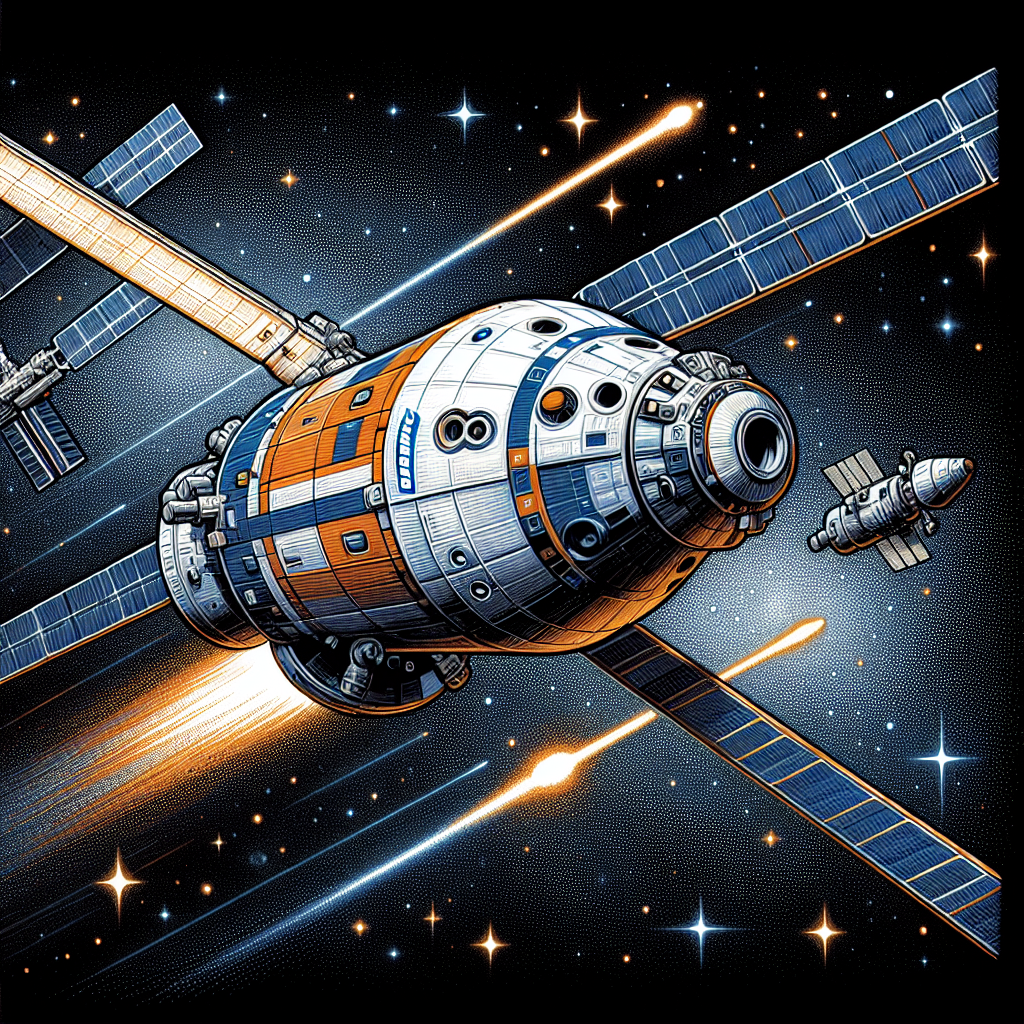Rigors in Space: Challenges, Mysteries, and Discoveries
The science news brief highlights various challenges and discoveries in space exploration. Boeing's Starliner faces multiple issues delaying its return to Earth. New genomic analysis deepens the mystery of the last woolly mammoth's extinction. Researchers date an ancient shipwreck with precision, SpaceX is awarded a contract for ISS deorbiting, and a fossil suggests Neanderthal compassion. Meanwhile, ISS astronauts face threats from a broken Russian satellite, and Collins Aerospace might exit its contract for new ISS spacesuits.

Following is a summary of current science news briefs.
Explainer-How Boeing's Starliner can bring its astronauts back to Earth
Problems with Boeing's Starliner capsule, still docked at the International Space Station (ISS), have upended the original plans for its return of its two astronauts to Earth, as last-minute fixes and tests draw out a mission crucial to the future of Boeing's space division. NASA has rescheduled the planned return three times, and now has no date set for it. Since its June 5 liftoff, the capsule has had five helium leaks, five maneuvering thrusters go dead and a propellant valve fail to close completely, prompting the crew in space and mission managers in Houston to spend more time than expected pursuing fixes mid-mission.
Genome study deepens mystery of what doomed Earth's last mammoths
About 4,000 years ago, the last of Earth's woolly mammoths died out on a lonely Arctic Ocean island off the coast of Siberia, a melancholy end to one of the world's charismatic Ice Age animals. But what doomed this last mammoth population on Wrangel Island? A new genomic analysis deepens the mystery. The study offers the fullest account to date of the inbreeding, deleterious mutations and low genetic diversity experienced by this population during 6,000 years of isolation on the island but concluded that, despite previous suggestions, these factors are unlikely to have doomed the Wrangel mammoths.
Study firms up date of famous ancient shipwreck off Cyprus
When scientists in the 1960s excavated the wreck of an ancient Greek merchant ship off the northern coast of Cyprus, what they found was an amazing time capsule from a pivotal period in the Mediterranean world following the death of Alexander the Great. But determining the date of the Kyrenia shipwreck with any sort of precision has proven difficult, and some previous scientific dating yielded conclusions that conflicted with the archeological evidence. Researchers have now calculated this timeline with new precision using improved techniques that they said can be applied to date other ancient shipwrecks as well.
Musk's SpaceX gets $843 million to help discard International Space Station around 2030
NASA awarded SpaceX $843 million to build a vehicle capable of pushing the International Space Station into Earth's atmosphere for its planned destruction around 2030, it said on Wednesday, a task originally meant for Russia's thrusters. Under its new NASA contract, SpaceX will build what the space agency called the U.S. Deorbit Vehicle to deorbit the space station and avoid risks to populated areas, with NASA taking ownership of the craft and handling the deorbiting operation.
Fossil of child with Down syndrome hints at Neanderthal compassion
Living among a small band of Neanderthals in what is now eastern Spain was a child, perhaps 6 years old, with Down syndrome, as shown in a remarkable fossil preserving traits in the inner ear anatomy indicative of this serious genetic condition. This fossil, unearthed at the Cova Negra archeological site in the province of Valencia near the city of Xàtiva, not only represents the earliest-known evidence of Down syndrome but, according to scientists, hints at compassionate caregiving in these extinct archaic humans - close cousins to our own species.
Russian satellite breaks up in space, forces ISS astronauts to shelter
A defunct Russian satellite has broken up into more than 100 pieces of debris in orbit, forcing astronauts on the International Space Station to take shelter for about an hour and adding to the mass of space junk already in orbit, U.S. space agencies said. There were no immediate details on what caused the break-up of the RESURS-P1 Russian Earth observation satellite, which was declared dead in 2022.
RTX's Collins in talks to drop ISS spacesuit contract with NASA, sources say
RTX Corp subsidiary Collins Aerospace is in talks with NASA to back out of its contract to build new spacesuits for astronauts on the International Space Station, a setback as the agency struggles with its decades-old spacewalking suits, according to two people familiar with the discussions. The contract was part of $3.5 billion NASA awarded to both Collins and Axiom Space in 2022 to build new spacesuits for the ISS and future moon missions. Collins got an initial $97 million under the program for ISS suit development, while it could vie with Axiom to get additional funds to work on lunar spacesuits.
(This story has not been edited by Devdiscourse staff and is auto-generated from a syndicated feed.)










